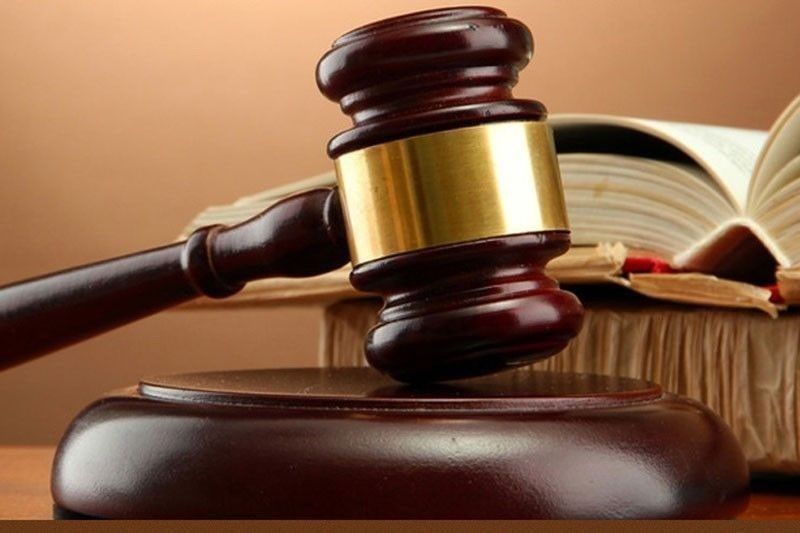Philippines drops to 102nd of 139 in rule of law index

MANILA, Philippines — Adherence to the rule of law in the Philippines remains one of the weakest in the region, with the country placing 102nd out of 139 countries included in the Rule of Law Index of the World Justice Project (WJP).
The Philippines dropped from 91st out of 128 countries in the index last year and remained at 13th place out of 15 countries in East Asia and the Pacific region, ahead of Myanmar and Cambodia.
The index measures adherence to the rule of law based on eight indicators: constraints on government powers, absence of corruption, open government, fundamental rights, order and security, regulatory enforcement, civil justice and criminal justice.
Countries get a score of 0 to 1, with 1 indicating strongest adherence to the rule of law.
In the latest index, the Philippines scored 0.46, lower by 0.01 compared to last year. The country’s scores also declined in all indicators except in regulatory enforcement and criminal justice, which stayed at 0.48 and 0.31, respectively.
The index also noted a statistically significant change in the country’s score in order and security, which dropped by 0.02 to 0.63.
The country has continuously slipped in the index since 2015, when it placed 51st out of 103 countries with a score of 0.53.
On the first year of the Duterte administration in 2016, the Philippines scored 0.51 and ranked 70th out of 113. It further dropped to 88th out of 113 with a score of 0.47 in the 2017/2018 index and 90th out of 126 with a score of 0.47 in 2019.
According to the WJP, more countries declined than improved in overall rule of law performance for the fourth consecutive year.
“In a year dominated by the global COVID-19 pandemic, 74.2 percent of surveyed countries experienced declines in rule of law performance, while only 25.8 percent improved. The declines were widespread and seen in all corners of the world. For the second year in a row, in every region, a majority of countries slipped backward or remained unchanged in their overall rule of law performance,” the WJP added.
Denmark and Norway topped the list with scores of 0.90, followed by Finland (0.88), Sweden (0.84), Germany (0.84), Netherlands (0.83), New Zealand (0.83), Luxembourg (0.83), Austria (0.81), Ireland (0.81) and Estonia (0.81).
At bottom of the list were Venezuela (0.27), Cambodia (0.32), Congo (0.35), Egypt (0.35), Cameroon (0.35), Afghanistan (0.35), Mauritania (0.36), Haiti (0.38) and Nicaragua (0.38).
In East Asia and the Pacific region, following New Zealand were Australia (0.79), Japan (0.79), Singapore (0.78), Hong Kong (0.75), South Korea (0.74), Malaysia (0.57) and Mongolia (0.54).
In the bottom half were Indonesia (0.52), Thailand (0.50), Vietnam (0.49), China (0.47), the Philippines (0.46), Myanmar (0.39) and Cambodia (0.32).
Vice President Leni Robredo yesterday expressed disappointment over the country’s drop in rankings, noting how failure to adhere to the rule of law would impact other issues affecting Filipinos.
“When I was in Congress, I was part of the inter-agency committee making sure that our rankings improve… the opposite happened,” Robredo said in Filipino.
“If our performance is not right as far as respecting the rule of law, its impact is on the gut issues affecting our countrymen – health, education, human rights, social justice. All important aspects of our life are affected by this,” she added.
Necessary adjustments
?The country’s police force and justice department are keen on working to better their performance as the Philippines fared poorly among countries ranked on compliance with the rule of law.
Gen. Guillermo Eleazar, chief of the Philippine National Police, said the WJP’s findings are taken as a challenge for the PNP to do more in maintaining peace and order in the country and vowed to make the necessary adjustments for the benefit of all.
While the WJP only collected its data from Metro Manila, Cebu and Davao, Eleazar said its “2021 Rule of Law Index” is still considered by the PNP as a valuable tool for review and assessment since the three major areas are appropriate representations of the peace and order situation in the country.
“Our ultimate goal for every Filipino to feel the true sense of security and justice in the country has been a work in progress, and inputs from various institutions that include the WJP are always factored in to rethink and adjust our policies to attain this objective,” he said in a statement.
Eleazar said such observations, coupled with the PNP’s sensitivity to public opinion, is the reason why his leadership has to expedite the distribution of body-worn cameras and strengthen consultation with the Supreme Court to resolve gray areas in their use.
For his part, Justice Secretary Menardo Guevarra assured the Filipino people that the government will exert all efforts to uphold and promote compliance with the rule of law.
But Guevarra said he cannot comment specifically on the WJP report because he has neither seen nor been informed about the basis of its rankings.
“Except for a few sensational cases, the general crime rate in our country has been on a downtrend in recent years and the government has been addressing reported violations of human rights and alleged abuses in the conduct of the campaign against illegal drugs,” he said. – Emmanuel Tupas, Robertzon Ramirez
- Latest
- Trending
































